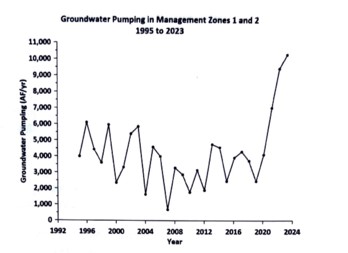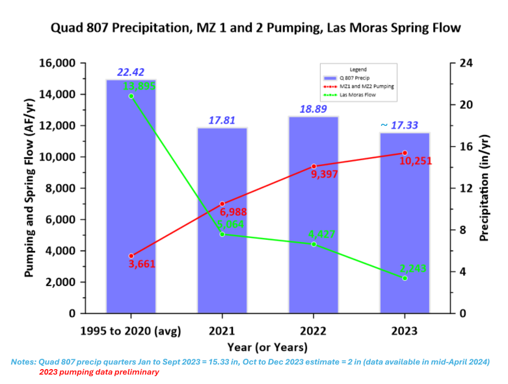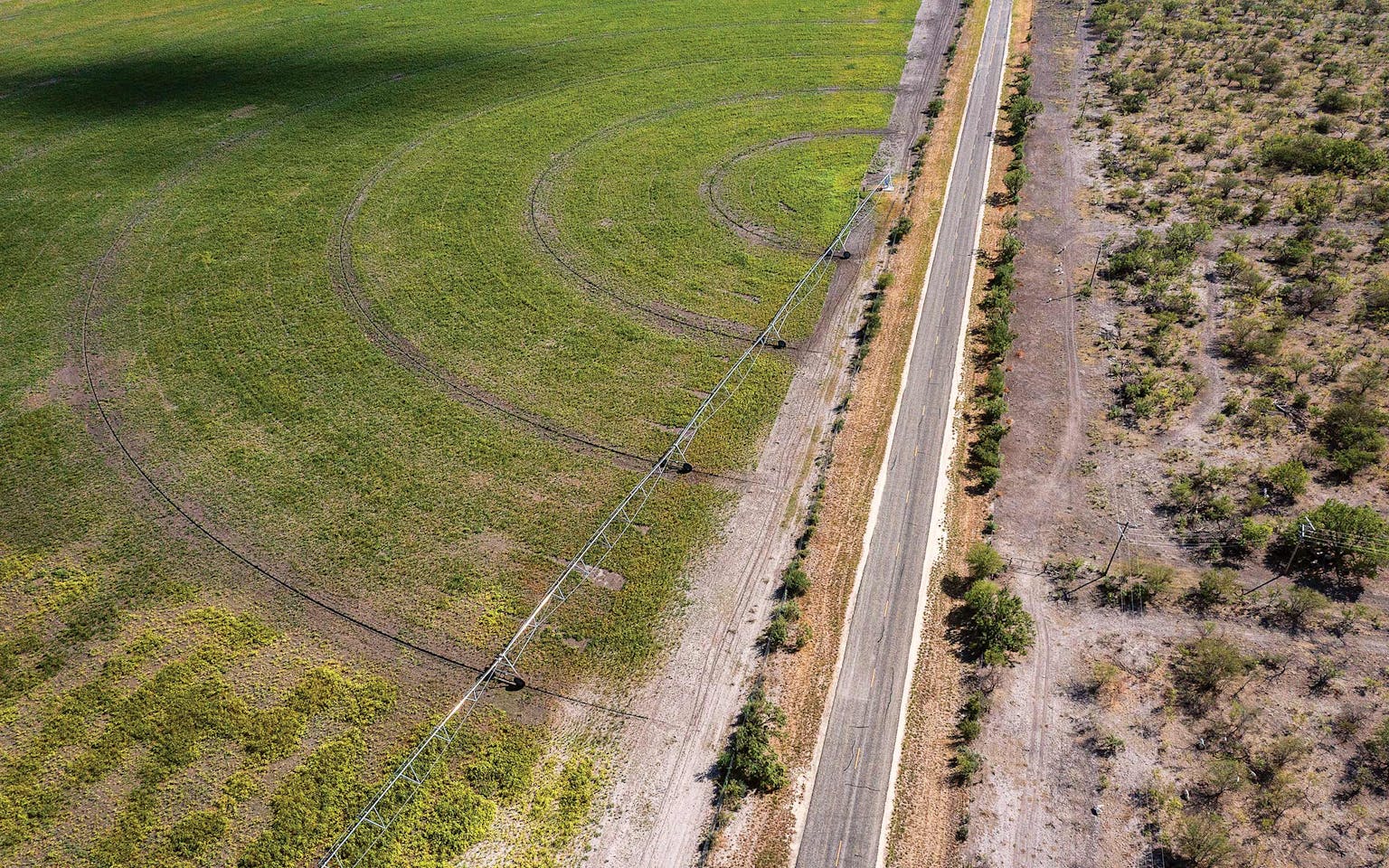
Bill Hutchison’s Letter Analysis
The recent letter released on June 3, 2024 by Bill Hutchinson, the hydrologist for the Kinney County Groundwater Conservation District (KCGCD). While the report suggests that normal spring flow will resume with sufficient rainfall, the data presented tells a different story. Here, we analyze the key data points from Hutchinson’s report and highlight the critical need for immediate action to curtail excessive pumping.
See full letter here.
- According to the report, groundwater pumping in Kinney County has more than doubled, from an average of 4,500 acre-feet per year to nearly 11,000 acre-feet per year.
- This dramatic increase in pumping is directly correlated with the drying up of Las Moras Springs.
- Historical data indicates that Las Moras Springs used to flow consistently at rates between 12 to 14 million gallons per day.
- For the past three summers, the spring has been dry.
- According to USGS data, since 2022, springflow has consistently dropped as soon as irrigation season begins in late April-May. Springflow has consistently returned in late September-November each year since 2022, even when little to no rainfall occurs in the recharge zone.
- Over-reliance on rainfall for recharge, without addressing excessive pumping, poses a long-term threat to the sustainability of the springs.
- The data shows a strong correlation between increased groundwater pumping by permit holders and decreased spring flow rates.
- Springs like Las Moras are highly sensitive to changes in the water table, and continued over-pumping could lead to permanent cessation of spring flow.

This graph clearly shows the inverse relationship between the increased groundwater pumping and the declining spring flow rates over the past five years. The more water extracted from the aquifer, the less water is available to feed the springs.

This figure illustrates the consistent flow rates of Las Moras Springs before the recent surge in groundwater pumping. It underscores the historical reliability of the springs, which has been disrupted by unsustainable extraction practices.

The data clearly indicates that the current rate of groundwater pumping is unsustainable. To protect Las Moras Springs, the following actions are urgently needed.
Immediate adoption of the Critical Period Management Plan to establish clear triggers for reducing groundwater pumping during low-flow periods.
Mandatory enforcement of pumping limits based on the stages outlined in the SOS Plan to ensure the aquifer's long-term health and the springs' sustainability.
Encourage all permit holders to adopt and implement comprehensive water conservation plans to reduce overall water use.
Educate the community about the critical state of Las Moras Springs and the importance of supporting sustainable water management practices.
The science is clear: without immediate and decisive action to curtail excessive groundwater pumping, the future of Las Moras Springs is in jeopardy. The data from the hydrologist’s report underscores the urgent need to adopt and enforce the SOS Plan. By taking these steps, we can protect our vital water resources and ensure a sustainable future for Kinney County.
Support the SOS Plan:
– Sign the Petition to Endorse the SOS Plan
For More Information:
If you have any questions or need more information about the science behind the SOS Plan, please contact us at:
Email: [email protected]
Phone: (830) 555-1234
Address: 123 Main Street, Brackettville, TX 78832
Together, we can make a difference and ensure the sustainability of Las Moras Springs for generations to come. Thank you for your support!

Join the cause and sign the petition today!